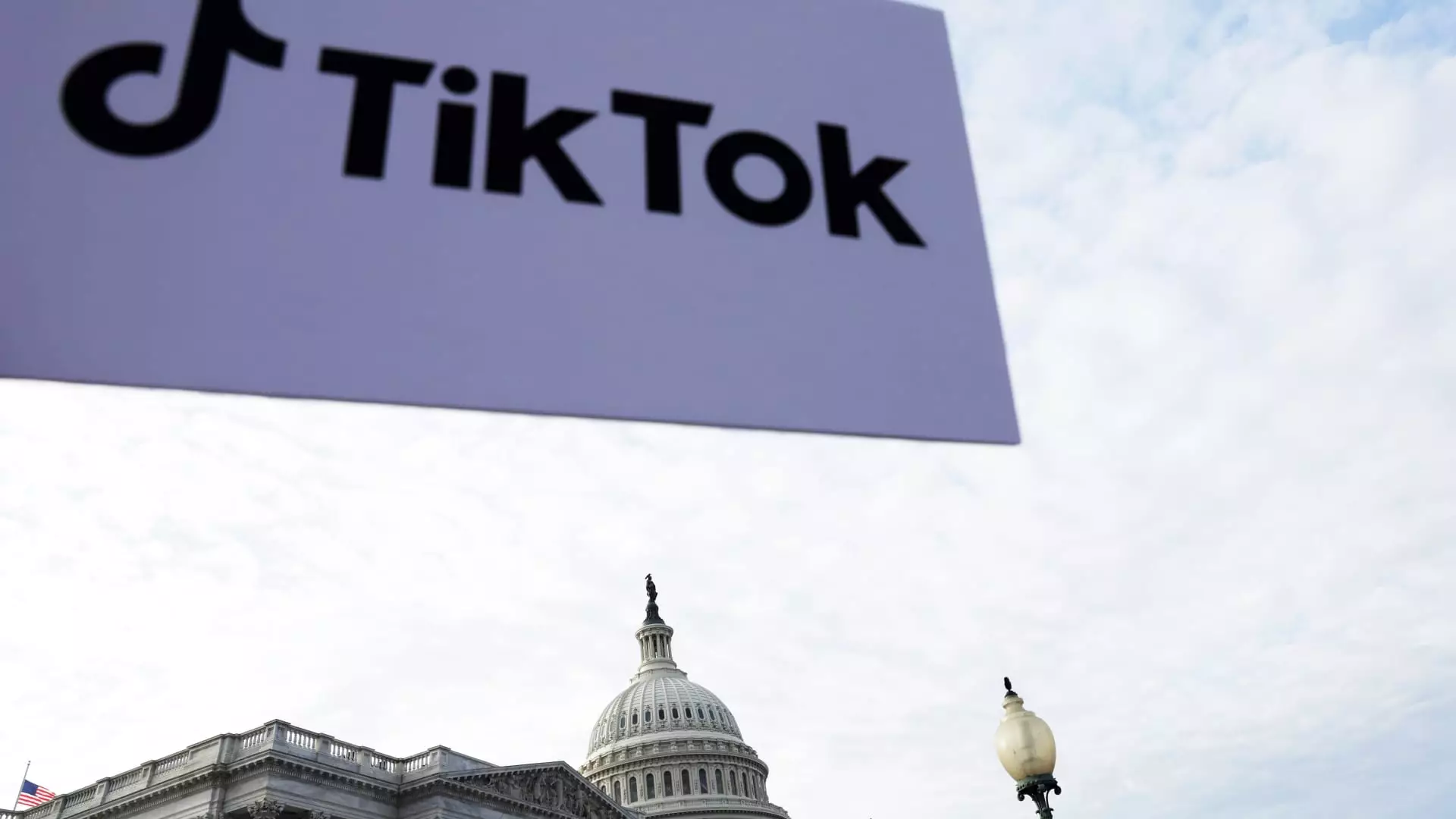As regulatory scrutiny mounts, TikTok faces an uncertain future in the United States. Recent actions from Congress, along with judicial decisions, suggest a looming threat of a ban that could reshape the application’s presence in the country. Members of the House Committee are pushing Apple and Google to brace for this potential development, urging compliance with legislation that could force a severance from the popular social media platform. This situation is reflective of the broader challenges and political tensions tied to digital technology amid national security concerns.
The Select Committee on the Chinese Communist Party, consisting of bipartisan members including Representatives John Moolenaar and Raja Krishnamoorthi, has taken decisive actions to enforce compliance among major tech companies. Letters dispatched to Apple CEO Tim Cook and Alphabet CEO Sundar Pichai signify the seriousness of the impending legal ramifications as set forth by the U.S. Court of Appeals’ recent ruling. This decision stipulates that TikTok’s parent company, ByteDance, must divest its American operations by mid-January or face a ban.
The directive to Apple and Google underlines their role as custodians of app marketplaces, where compliance with U.S. law is paramount. The lawmakers have clearly articulated that failing to adhere to this legal obligation could result in significant penalties, thus stressing not just the operational implications but also highlighting the broader political climate influencing these measures.
While lawmakers argue the legality of the actions taken, TikTok has vehemently contended that such restrictions violate U.S. constitutional rights. With a user base of approximately 170 million individuals in the U.S., the stakes are high. TikTok’s warnings about the potential economic fallout underscore a critical aspect of this narrative; the platform claims that an enforced ban could incur a loss of approximately $1.3 billion in revenue for U.S. small businesses and content creators within just one month of implementation. This alarming figure serves to frame the conversation not merely in terms of national security but as an economic issue that affects livelihoods across the nation.
A bipartisan acknowledgment of the necessity to safeguard national interests must also take into account the economic ramifications of drastic policy shifts, especially those that could alienate a significant user demographic and harm American companies reliant on social media platforms for business.
In a bid to stall the impending ban, TikTok has filed an emergency motion seeking an injunction, thereby requesting the U.S. Supreme Court to deliberate its case further. This move reflects a broader strategy of using legal avenues to navigate legislative hurdles that have increasingly embroiled the platform. The court’s initial dismissal of TikTok’s First Amendment argument reinforces the idea that legislative and judicial branches are currently aligned in pursuit of a regulatory framework addressing security concerns surrounding foreign-owned entities in the U.S.
The implications of such legal battles stretch beyond TikTok itself. They signal an overarching narrative about technology governance and how nations reconcile the intersection of commerce, technology, and national security. As regulations evolve, the very framework that supports platforms like TikTok may undergo significant transformations, with potential ramifications that could ripple across the global digital landscape.
Amid this tumultuous backdrop, influential figures—like billionaire investor Jeff Yass—have emerged as critical players. Their interactions with political leaders and involvement in companies linked to TikTok further complicate the narrative, introducing elements of vested interests and financial stakes. The transformative nature of political ecosystems, especially in the tech sector, suggests that outcomes may be swayed not just by legal precedent but by the financial considerations of powerful stakeholders.
As President-elect Donald Trump assembles his agenda, questions remain about his intentions regarding TikTok, particularly after past attempts to impose a ban during his prior administration. The shifting tone in political discourse surrounding TikTok paints a vivid picture of how economic interests can influence legislative decisions, thereby complicating the regulatory environment that tech companies navigate.
As the impending January deadline approaches, the uncertainty surrounding TikTok leaves many pondering the future of digital engagement in the U.S. The convergence of legislative action, judicial rulings, economic stakes, and political influences creates a complex environment that necessitates careful navigation by both lawmakers and tech companies. How this plays out will not only shape TikTok’s future but could also set crucial precedents for tech regulation and foreign investment in America’s burgeoning digital economy. The dialogue surrounding these developments will likely persist, underscoring the need for a balanced approach that addresses national security while fostering economic vitality and innovation.



Leave a Reply